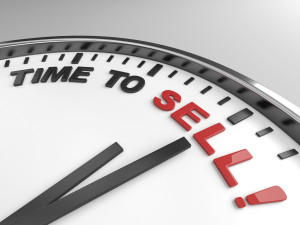
Happy Employees Can Increase Profits…and Value
Happy employees mean happy customers and clients. An unhappy employee can mean loss of business or worse. How does a business owner create happy and contented employees? It all starts with the hiring process – hiring positive people to start with certainly helps. Offering as many benefits as your business can afford is also a plus.
However, one of the big keys is simply for the business owner to treat employees well, and appreciate their contributions. Some owners expect their employees to have the same dedication to the business as they do. They are not owners and don’t have the same privileges as an owner does. In most cases, the business is an owner’s life, whereas the employee has a life outside of the business. It is important that the owner understands this difference.
In the long run, positive and happy owners have happy employees. But if being a good role model doesn’t do the job with workers who remain negative, your only recourse is to get rid of them. Reward your people with praise, and every once in a while give them a dinner gift certificate for two – or their birthday off – anything to let them know you appreciate their work. It’s an inexpensive way to increase profits and subsequently the value of the business. When a potential buyer checks the business, and they will, being waited on by a happy employee can seal the deal.
Copyright: Nosnibor137/bigstockphoto.com
Read More
Take a Look at Your Lease
If your business is not location-sensitive, that is, if your business location is immaterial to its success, then the following may not be important. However, lease information is usually helpful no matter what the situation. The business owner whose business is very dependent on its current location should certainly read on.
If your business is location-sensitive, which is almost always true for a restaurant, a retail operation, or, in fact, any business that depends on customers finding you (or coming upon you, as is often the case with a well-located gift shop) – the lease is critical. It may be too late if you already have executed it, but the following might be helpful in your next lease negotiation.
Obviously, a very important factor is the length of the lease, usually the longer the better. If the property ever becomes available – do whatever it takes to purchase it. However, if you are negotiating a lease for a new business, you might want to make sure you can get out of the lease if the business is not successful. A one-year lease with a long option period might be an idea. Keep in mind that you might want to sell the business at some point – see if the landlord will outline his or her requirements for transfer of the lease.
If you’re in a shopping center, insist on being the only tenant that does what your business does. If you have a high-end gift store, a “dollar” type of store might not hurt, but its inclusion as a business neighbor should be your decision. Also, if the center has an anchor store as a draw, what happens if it closes? The same is true if the center starts losing businesses. Your rent should be commensurate with how well the center meets your needs.
What happens if the center is destroyed by fire or some other disaster – who pays, how long will it take to rebuild? – these questions should be dealt with in the lease. In addition to the rent, what else will be added: for example, if there is a percentage clause – is it reasonable? How are the real estate taxes covered? Are there fees for grounds-keeping, parking lot maintenance, etc? How and when does the rent increase? Who is responsible for what in building repair and maintenance?
A key issue for many business owners is determining who holds ultimate responsibility for the rent. Are you required to personally guarantee the terms of the lease? If you have a business that has been around for years, or if you are opening a second or third business, the landlord should accept a corporation as the tenant. However, if the business is new, a landlord will most likely require the personal guarantee of the owner.
The dollar amount of the rent is not necessarily the most important ingredient in a lease. If the business is successful – the longer the lease the better. If it’s a new business, the fledging owner might want an escape clause. And, in any case, the right to sell the business and transfer the business is a necessity.
Copyright: Anton Foltin/bigstock.com

Rating Today’s Business Buyers
Once the decision to sell has been made, the business owner should be aware of the variety of possible business buyers. Just as small business itself has become more sophisticated, the people interested in buying them have also become more divergent and complex. The following are some of today’s most active categories of business buyers:
Family Members
Members of the seller’s own family form a traditional category of business buyer: tried but not always “true.” The notion of a family member taking over is amenable to many of the parties involved because they envision continuity, seeing that as a prime advantage. And it can be, given that the family member treats the role as something akin to a hierarchical responsibility. This can mean years of planning and diligent preparation, involving all or many members of the family in deciding who will be the “heir to the throne.” If this has been done, the family member may be the best type of buyer.
Too often, however, the difficulty with the family buyer category lies in the conflicts that may develop. For example, does the family member have sufficient cash to purchase the business? Can the selling family member really leave the business? In too many cases, these and other conflicts result in serious disruption to the business or to the sales transaction. The result, too often, is an “I-told-you-so” situation, where there are too many opinions, but no one is really ever the wiser. An outside buyer eliminates these often insoluble problems.
The key to deciding on a family member as a buyer is threefold: ability, family agreement, and financial worthiness.
Business Competitors
This is a category often overlooked as a source of prospective purchasers. The obvious concern is that competitors will take advantage of the knowledge that the business is for sale by attempting to lure away customers or clients. However, if the business is compatible, a competitor may be willing to “pay the price” to acquire a ready-made means to expand. A business brokerage professional can be of tremendous assistance in dealing with the competitor. They will use confidentiality agreements and will reveal the name of the business only after contacting the seller and qualifying the competitor.
The Foreign Buyer
Many foreigners arrive in the United States with ample funds and a great desire to share in the American Dream. Many also have difficulty obtaining jobs in their previous professions, because of language barriers, licensing, and specific experience. As owners of their own businesses, at least some of these problems can be short-circuited.
These buyers work hard and long and usually are very successful small business owners. However, their business acumen does not necessarily coincide with that of the seller (as would be the case with any inexperienced owner). Again, a business broker professional knows best how to approach these potential problems.
Important to note is that many small business owners think that foreign companies and independent buyers are willing to pay top dollar for the business. In fact, foreign companies are usually interested only in businesses or companies with sales in the millions.
Synergistic Buyers
These are buyers who feel that a particular business would compliment theirs and that combining the two would result in lower costs, new customers, and other advantages. Synergistic buyers are more likely to pay more than other types of buyers, because they can see the results of the purchase. Again, as with the foreign buyer, synergistic buyers seldom look at the small business, but they may find many mid-sized companies that meet their requirements.
Financial Buyers
This category of buyer comes with perhaps the longest list of criteria–and demands. These buyers want maximum leverage, but they also are the right category for the seller who wants to continue to manage his company after it is sold. Most financial buyers offer a lower purchase price than other types, but they do often make provision for what may be important to the seller other than the money–such as selection of key employees, location, and other issues.
For a business to be of interest to a financial buyer, the profits must be sufficient not only to support existing management, but also to provide a return to the owner.
Individual Buyer
When it comes time to sell, most owners of the small to mid-sized business gravitate toward this buyer. Many of these buyers are mature (aged 40 to 60) and have been well-seasoned in the corporate marketplace. Owning a business is a dream, and one many of them can well afford. The key to approaching this kind of buyer is to find out what it is they are really looking for.
The buyer who needs to replace a job is can be an excellent prospect. Although owning a business is more than a job, and the risks involved can frighten this kind of buyer, they do have the “hunger”–and the need. A further advantage is that this category of buyer comes with fewer “strings” and complications than many of the other types.
A Final Note
Sorting out the “right” buyer is best left to the professionals who have the experience necessary to decide who are the best prospects.
Copyright: monkeybusinessimages/Bigstock.com
Read More
Are you a “Baby Boomer” Business Owner?
What is so special about “Baby Boomer” business owners? Well, there are a lot of them. It is estimated 52 percent of businesses are owned by people between 50 and 88 years of age. This equates to 9 million businesses in the United States. Put it another way, a business owner is turning 65 every 57 seconds.
So, why is this important? Typical of most business owners, the value of their business amounts to 50 to 75 percent of their net worth (if not more); the remainder in personal real estate and financial investments. Ordinarily, the business owner has only one chance to monetize his or her largest asset through the sale of the business.
It is estimated that 11,000 people are turning 65 years old every day, with this trend continuing for the next 18 years. Being that many of these Baby Boomers are also business owners, one would suspect that every year for the next two decades more and more business owners will be wanting to sell their businesses to cash out and fund their retirements. These businesses amount to some $10 trillion worth of assets.
Yet while more and more businesses go up for sale, the audience of buyers is decreasing. Today, the highest segment of business buyers is the same Baby Boomers in the age range of 55 to 64 years old. The 80 million millennials in the U.S. make up a larger demographic, though their abilities to purchase these businesses are quite low.
Applying the law of supply and demand, there is going to be a growing inventory of businesses for sale each year, while the number of qualified buyers is decreasing each of those years. The law of supply and demand would suggest there will be pricing pressure on these businesses. In addition, overall only 1 out of 4 businesses actually sell after being put on the market; however, the success rate increases to 1 in 3 for businesses with sales of $10 million, and the sale success rate grows to 1 in 2 for businesses with sales greater than $10 million.
Now What?
The PriceWaterhouseCoopers accounting firm estimates more than 75 percent of business owners have done little planning for their single biggest financial asset. It is sad to say, but business owners spend more time planning their next vacation than planning for their exit into retirement.
Business owners should start the exit planning process today. Serious consideration should be given to creating a timeframe to place the business in the best position to be sold at the highest possible valuation.
Fortunately, the window of opportunity is quite good. Current conditions of rock bottom interest rates, low inflation, historically low capital gain taxes and overall high business valuations make this an ideal time to sell a business. In real estate it is all about “location, location, location,” whereas in business it is all about “timing, timing, timing.” Now is the time to cash in.
Exit planning, however, is a process that requires a significant amount of work. Most important, business owners need to assemble a team of professional advisors to assist them in this process. The team may consist of all or some of these professionals: a business intermediary firm, CPA/accountant, business attorney, financial planner, investment advisor, insurance advisor, valuation specialist, investment banker, banker and business consultant.
Using the analogy of an actual roadmap, this process can be broken down into five exits:
Exit 1: Making the Decision to Sell
Exit 2: Exit Planning Process
Exit 3: Maximizing Business Value
Exit 4: Preparing the Business for Sale
Exit 5: The Deal Process
The actual Planning Process often includes the following seven steps:
1. Identify Exit Objectives
2. Quantify Business & Personal Financial Resources
3. Maximize & Protect Business Value
4. Ownership Transfer to Third Parties
5. Ownership Transfer to Insiders
6. Business Continuity
7. Personal Wealth & Estate Planning
There is no time better than right now to start planning an exit, whether that is tomorrow, next month, next year or the next decade. Just be careful not to miss your EXIT…else you will hear your GPS (or significant other) say, “when possible turnaround” or as my GPS would say, “you idiot, you missed your exit…proceed on this road for another 20 miles.”
This article appeared in the November 2015 edition of Traverse City Business News.
Read More
A Buyer’s Quandary
Statistics reveal that out of about 15 would-be business buyers, only one will actually buy a business. It is important that potential sellers be knowledgeable on what buyers go through to actually become business owners. This is especially true for those who have started their own business or have forgotten what they went thorough prior to buying their business.
If a prospective business buyer is employed, he or she has to make the decision to leave that job and go into business for and by himself. There is also the financial commitment necessary to actually invest in a business and any subsequent loans that are a result of the purchase. The new owner will likely need to execute a lease or assume an existing one, which is another financial commitment. These financial obligations are almost always guaranteed personally by the new owner.
The prospective business owner must also be willing to make that “leap of faith” that is so necessary to becoming a business owner. There is also the matter of family and personal responsibilities. Business ownership, aside from being a large financial consideration, is very time consuming, especially for the new business owner.
All of these factors have to be weighed very carefully by anyone that is considering business ownership. Buyers should think carefully about the risks – and the rewards. Sellers should also put themselves in a buyer’s position. The services of a professional business broker or intermediary can help determine the relative pros and cons of the transaction.
Read More
